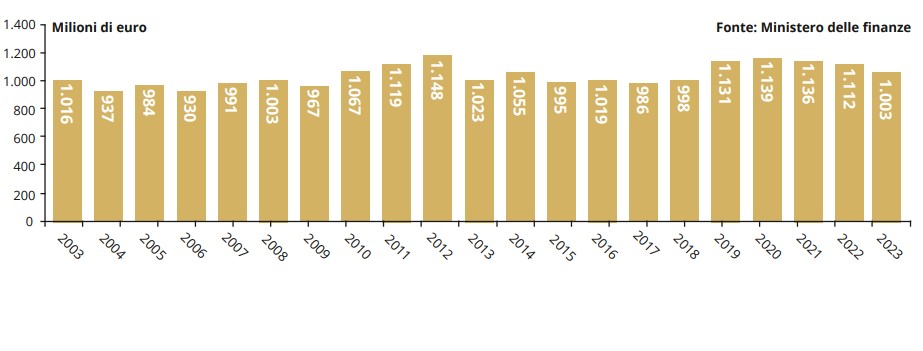The meat returns to the Americans’ plate: because record sales are a political question (and Trump has to do with it)

In 2024 sales of meat in the United States reached 104.6 billion dollars, with a per capita consumption of 7%. The arrival of Donald Trump with the presidency has strengthened a rhetoric that associates the consumption of meat with traditional and nationalist values
The meat returns to the American tables. After years of domination of vegetable alternatives in nutrition, the so-called « Plant-Based », 2024 marked a significant reverse inversion. According to a report by IMF and the Meat Institute, Meat sales have reached a record of 104.6 billion dollars. And only 22% of Americans say they want to reduce the intake of meat, the lowest figure of the last five years. It is not only a food phenomenon, but a real cultural change full of political meanings.
The data report that the Americans have increased the Meat consumption of 7% compared to the pre-covid era, with a consumption of over 120 kilograms each per year. It is a significance of a clear trend compared to the drop recorded until 2022, when the consumption had dropped to 119.75 kilos.
It is a given in contrast to what happens in Italy, which with about 79 kg of meat consumed annually per person in 2024 – 40% less than the Americans – remains anchored to the Mediterranean tradition, where the meat represents a complement and not the fulcrum of food. Italians continue to decrease year after year the consumption of meat, with a 7% drop since 2010, When the per capita consumption was 84 kg.
The Mediterranean diet In fact, it continues to privilege a model based on fruit, vegetables, whole grains, legumes and olive oil, with a moderate role for animal proteins. A cultural heritage that UNESCO has recognized as an immaterial good of humanity and that science associates with longevity and less incidence of cardiovascular pathologies.
The return of the steak to America is fed by one New narration that sees the meat as a symbol of authenticity, tradition and well -being. Influencers and celebrities and promote diets rich in animal proteins, often in opposition to vegan trends and environmental concerns. The movement «Make America Healthy Again », explicit reference to the Trumpian slogan, transformed the « beef tallow » (beef fat) into identity symbol. It is no coincidence that the Health Secretary Robert F. Kennedy Jr. publicly celebrated the transition from semi-defined « dangerous » oils to the most « healthy » animal fat to fry the chips of a well-known fast-food chain. While Personality such as Elon Musk and the king of podcasts Joe Rogan praised the benefits of carnivorous diets.
The return of meat to the United States is not only a food, but also political issue. The arrival of Donald Trump to the presidency has strengthened A rhetoric that associates the consumption of meat with traditional and nationalist values. The meat thus becomes a symbol of resistance against urban elites and environmental policies perceived as restrictive. American political polarization, intertwining with the « muscle » approach of the Trump era, thus also reflects on the plate: on the one hand i « Carnibros », conservatives who see a bulwark against the agenda in the steak green progressive, on the other the liberals Farm-to-table who prefer meat from sustainable and local farms. Both, however, united in the rediscovery of animal protein, supports the New York Times.
In Italy this politicization of food still appears far away. The Mediterranean tradition remains transversal to political sides, although also in our country there is a slight growth in the sales of red meat, with an increase in consumption of 1.5% in the first quarter 2025. However, it resists a more sustainable and balanced food model, which leaves politics outside the kitchen door. At least for now.






